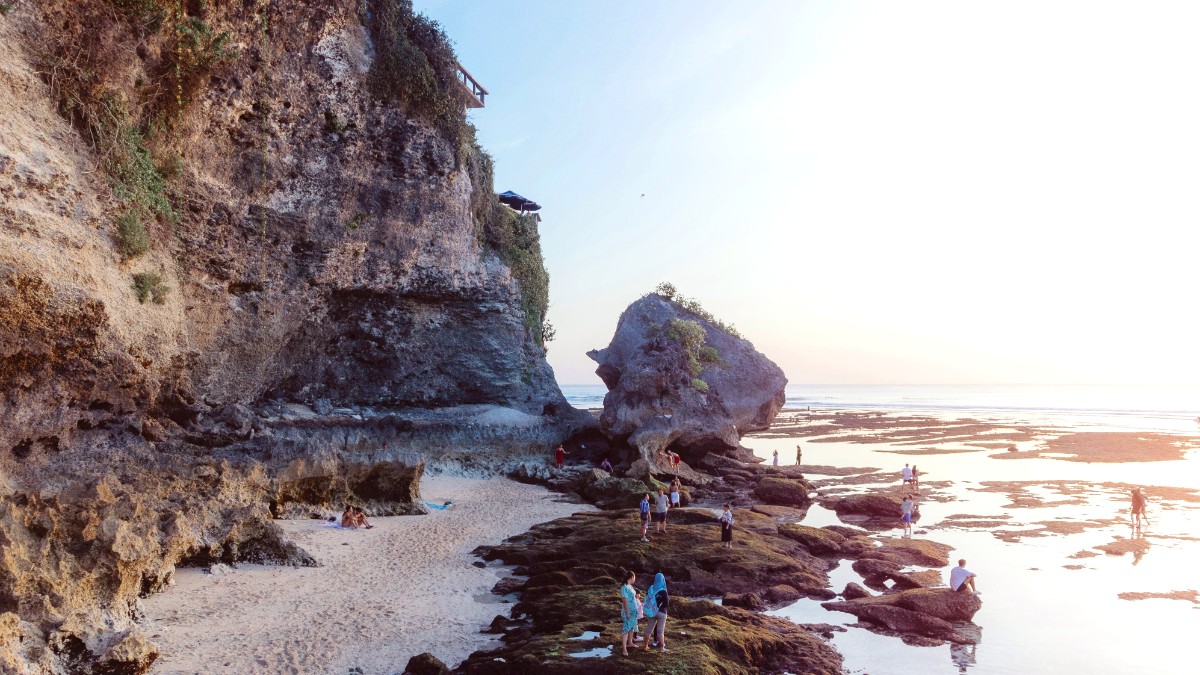
Indonesia
Temperatures typically range from 26°C to 32°C (79°F to 90°F) for most of the year, with slight, often unnoticeable, variations. Humidity levels stay high, around 75-85%. The tropical humidity is ever-present, making the air warm and moist.
Dry Season (May to September): This period brings less rainfall, lower humidity, and more sunshine. Average temperatures feel slightly lower and often bring more comfort, particularly for outdoor activities. Skies are generally clear, and the ocean is calm.
Wet Season (October to April): This season sees higher rainfall, notably from December to February. Rain frequently comes in heavy, short bursts, followed by periods of sunshine. Humidity reaches its peak during this period. Despite the name, continuous all-day rain is rare.
Bali does not typically encounter hurricanes; its equatorial position protects it from major cyclonic systems. The wet season features monsoonal rains, which cause localized flooding and travel disruptions, particularly on rural roads. Roads can become slippery. Extreme temperatures are uncommon; the climate stays consistently warm and humid, without cold snaps or intense heat waves.
Many nationalities find eligibility for a Visa on Arrival (VOA) for tourism. This is obtainable upon arrival at Ngurah Rai International Airport (DPS) in Denpasar, Bali. Alternatively, you can apply for an Electronic Visa on Arrival (e-VOA) prior to arrival via the official Electronic Visa on Arrival (e-VOA) portal. The VOA is valid for 30 days and one extension for another 30 days. The cost is IDR 500,000 (approximately USD 35, subject to exchange rates). Applying for the e-VOA online often speeds airport immigration.
Citizens of ASEAN countries (like Malaysia, Singapore, and Thailand) are eligible for visa-free entry, valid for 30 days and not extendable. For longer stays or specific purposes, like remote work or business, an e-Visa (D2/D12) applies. Applications proceed online through the Indonesian immigration website before travel. Some categories may require sponsorship from an Indonesian entity.
Essentials for entry
Valid for at least 6 months beyond departure from Indonesia.
Proof of confirmed departure ticket always applicable.
Funds for your journey
Immigration officials may request evidence of funds for your stay.
IDR 500,000, payable in cash or credit card at arrival counter.
Arrival procedures
Submit an Electronic Customs Declaration (ECD) via ECD website.
Generally, no special permits are necessary for standard tourism activities.
The local currency is the Indonesian Rupiah (IDR). Exchange rates fluctuate. As an example, approximately 1 USD equals 15,500 - 16,500 IDR (rates vary, check live). ATMs are widely available throughout Canggu and are the most convenient way to get cash. Look for ATMs from major banks like BCA, Mandiri, BNI, or BRI. For currency exchange, reputable money changers (like BMC or PT Central Kuta) offer competitive rates. Avoid street-side money changers that offer significantly higher rates, as they may be scams. Always count your money carefully. Credit cards find wide acceptance at hotels, larger restaurants, beach clubs, and supermarkets. Smaller shops, local warungs (eateries), and street vendors typically accept cash only. Carrying some cash for daily expenses has value.
Tipping is not mandatory in Bali, but appreciation for good service exists. Many establishments, notably mid-range to upscale restaurants, include a 5-10% service charge and a 10% government tax on your bill. If a service charge is included, additional tipping does not are an expectation, but rounding up the bill or leaving a small amount is common for exceptional service. For local warungs, tipping is generally not expected.
USD 20-55 per day (hostel, local food, scooter)
USD 65-180 per day (comfortable hotel, mixed dining, ride-hailing)
USD 225+ per day (luxury villa, fine dining, private driver)
IDR 20,000 - 50,000 per trip; IDR 50,000 - 100,000+ for full-day tours.
IDR 20,000 - 50,000 per treatment.
Preparation for common concerns and awareness of local resources contribute to a smooth journey.
No specific vaccinations are necessary for entry to Indonesia from most countries. Consulting a travel health professional 4-6 weeks before departure for personalized advice is a good idea. Routine vaccinations (MMR, DTP, Varicella, Polio, annual Flu) should be current. Hepatitis A and B, Typhoid, Rabies, and Japanese Encephalitis are considerations based on activity and length of stay.
Hospitals in Denpasar and Jimbaran are a 30-60 minute drive from Canggu. BIMC Hospital (Kuta) and Siloam Hospital (Denpasar) are popular tourist choices. Numerous clinics (Canggu Medical, Prime Medical) serve minor illnesses. Pharmacies (Apotek) are widely available. Dial 112 for general emergencies, 118 for ambulance. Tap water is not safe; use bottled or filtered water. Eat hot, freshly cooked food at establishments with high turnover.
Indonesia sits in an active seismic zone. Minor tremors are common, but major earthquakes affecting Bali occur less frequently. Familiarize yourself with hotel evacuation procedures upon arrival. Mount Agung and Mount Batur on Bali are active volcanoes. Eruptions can cause ash clouds, which might affect flights, and localized disruptions. Follow official advisories from the Indonesian government. While rare, Bali finds vulnerability to tsunamis following large offshore earthquakes. Tsunami warning systems are in place. Awareness of evacuation routes near the coast is important. Heavy rains during the wet season can cause localized flooding, landslides in hilly areas, and slippery roads, especially in rural areas.
Traffic in Bali shows chaotic patterns and poses danger, especially for scooter riders. Drive with extreme caution; accidents are common. Always wear a Helmet. Travel insurance is highly recommended. Look for policies covering medical emergencies, emergency medical evacuation, trip cancellation, lost/stolen luggage, personal liability, and specific activities like surfing or scooter riding. Check motorbike coverage details carefully.
Consider providers like World Nomads Travel Insurance or SafetyWing. Also, Insubuy offers various medical and travel coverage options.
112 (Police, Ambulance, Fire)
110
118
113
+62 361 754599 (Kuta, general Bali tourist police)